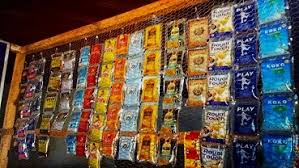
Ban on sachet alcohol threatens N1.9trn local investments — MAN
Implications for Nigerians
For both consumers and businesses, the disparity between the NFEM and parallel rates influences import expenses, remittance amounts, and the pricing of dollar-denominated products. Importers unable to access the official market may still encounter the premium of the parallel market when acquiring dollars for immediate transactions. Financial advisors suggest utilizing authorized FX channels whenever feasible and keeping an eye on official CBN announcements for substantial transfers.
Future Outlook
Experts indicate that the short-term direction of FX will depend on: (1) weekly FX allocations and communications from the CBN; (2) the rate of foreign investments in government and corporate securities; and (3) oil export revenues and global crude oil prices. Any significant alteration in these factors could lead to a notable shift in either the NFEM or parallel market rates within a matter of days.
The Manufacturers Association of Nigeria (MAN) has issued a warning that the decision to prohibit the production and sale of alcoholic beverages packaged in sachets and small PET bottles by 31st December 2025 could result in a loss exceeding N1.9 trillion in investments from local companies, along with the potential loss of 500,000 direct jobs and 5 million indirect jobs.
This concern arises in response to the recent directive from the National Agency for Food and Drug Administration and Control (NAFDAC) to implement a ban on sachet alcoholic beverages by the end of the year, following a resolution passed by the Senate during its session on Thursday, 6th November 2025.
In a statement released yesterday, Segun Ajayi-Kadir, the Director General of MAN, urged for the reversal of the ban, highlighting that the matters concerning the ban had previously been addressed by an expanded committee that included all stakeholders and representatives from NAFDAC, who endorsed the National Alcohol Policy in October 2025.
He stressed that claims regarding the abuse of minors due to the sale of these products in sachets have been refuted by numerous empirical studies conducted independently by the government.
He stated: "This announcement, which we consider counterproductive and likely to lead to significant economic disruption for the nation at this time, will have severe repercussions for the currently stabilizing economy for the following reasons:
"The loss of over N1.9 trillion in investments, primarily from indigenous Nigerian companies; the resulting mass layoffs of over 500,000 direct employees and approximately 5 million indirect jobs through contracts, marketing, and other logistics;
"A decrease in manufacturing capacity utilization, which had begun to gradually improve in recent quarters due to the industry's contribution as part of the food and beverages sector; and the potential loss of local businesses that could ultimately undermine the development of local entrepreneurship within the economy."





